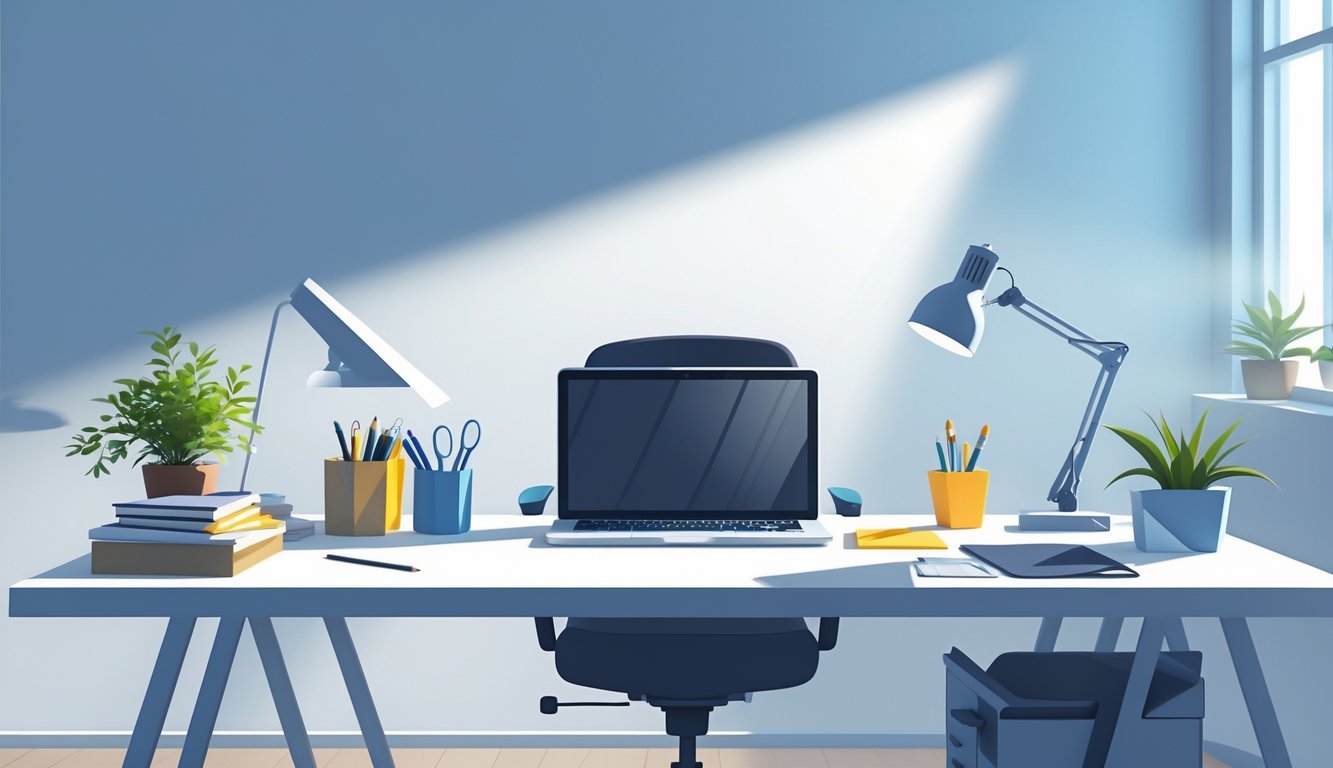
How an Organized Workspace Supports Better Decision-Making

It’s not just a drawer full of wires that sets me off—it’s the panic when I can’t find a pencil or the guilt of hiding receipts under my keyboard. I can’t think straight when there’s glare off a crusty mug or when I start sorting snack wrappers instead of working. Studies say clutter kills productivity by 40% or more; Marie Kondo swears your brain gets as blocked as your desk.
Reducing Cognitive Overload
Pens everywhere, tabs everywhere, sticky notes stuck to my elbow—my brain just gives up. Neuroscientists (they actually studied this, apparently) say every item in your view distracts you. Here’s a study if you want to feel worse about your desk. You can’t make fast decisions if your mind is busy counting junk mail.
I once missed a deadline because a report hid under an Amazon return label. Five minutes tossing out trash helps more than any app. If I keep only what I need close by, my anxiety drops a bit and I can actually focus. Susan Pinsky, a pro organizer, told me, “If you want clarity, give your workspace a haircut.” Catchy, right?
Still, I end up with a pile of dead highlighters. Maybe color-coding is just another scam.
Maintaining Clarity Amid Deadlines
It’s two minutes before a Zoom call and, I mean, my desktop looks like a toddler’s toy bin and the notifications just keep coming. I freeze—what was the point of this meeting again? I know people say keeping your workspace neat boosts productivity, and I’ve even seen that workspace organization and productivity study with the “38%” stat. Sounds fake, but also? I totally get it. Ever tried to think straight when you’re dodging to-do lists and sticky coffee rings?
My friend who works in IT swears labeling cables saves him an hour a week. Sure, maybe. That’s probably why the managers wipe down their desks every morning—less about germs, more about pretending they’re in control for five minutes before the deadlines start screaming.
I try to keep up, but why do I have a graveyard of broken USB drives? It’s like, I’m convinced the minute I toss one, I’ll need it for some emergency. I never do.
Impact on Posture and Well-Being
What actually drives me up the wall? My body just refuses to sit “properly,” no matter how many times I’m told posture matters. Nobody mentions how the chaos on your desk is probably wrecking your spine and your mood at the same time. You’re just expected to know this, somehow.
Desk Arrangements for Healthy Posture
I’ve got paper towers, a stapler that lives somewhere behind my shoulder, and a chiropractor who sighs every time I describe my desk. If my monitor’s off by an inch, my neck’s toast by lunch. Lumbar support, a chair that isn’t a wobbly antique, and a monitor that doesn’t make me crane my neck—honestly, those matter way more than any yoga video I pretend I’ll watch.
After a few hours hunched in this ergonomic disaster, I’m toast. Brown University Health says posture messes with your energy, and yeah, my sciatic nerve agrees. I’ve stacked printer paper under my feet as a footrest—whatever works. Ergonomics books throw around “kinetic chain efficiency,” but mostly, it’s about not needing a massage before payday.
If the mouse is even a little too far? Shoulder pain city. I started keeping only one pen handy. Not exactly genius, but it means I don’t reach as much, and my shoulder doesn’t hate me by 3pm. All these “tiny” changes add up. HR never believes me, but honestly, the best hacks aren’t about cute bins—they’re about not twisting yourself into a pretzel just to find a highlighter.
Link Between Cleanliness and Mental Health
A clean desk zaps my brain with more dopamine than coffee, and apparently there’s science for that. I read this study on the behavioral impact of electronic device use and posture about how clutter messes with your head and your body. I don’t need a PhD to know my mood tanks when the mugs outnumber my chargers.
If I try to clean everything at once, it goes sideways. Spot cleaning is the only thing that works. When the mess drops, my focus comes back like it’s been hiding. Less clutter, more brainpower. I overheard a therapist in a waiting room say clean spaces lower stress hormones—cortisone? Cortisol? Whatever, sounded right.
But then, when my desk is spotless, I overcommit to every project because I feel like I’m winning at life. That post-clean productivity spike crashes hard, but it’s still better than the slow dread of working in a landfill.
Maintaining an Organized Workspace Long-Term
How do coffee cups multiply overnight? Why do cords migrate? None of those “productivity hacks” tell you that staying organized is a never-ending experiment, not some one-time win.
Building Lasting Organization Habits
Baskets don’t magically eat paperwork. I read somewhere (maybe business.com) that people waste 4.3 hours a week looking for stuff. Sounds fake, until I realize I’ve spent 20 minutes hunting for my phone charger. Got a label maker and instantly regretted it—labeled my water bottle, then my lamp. The lamp never leaves my desk.
People say you need “systems.” Most of mine just become a junk drawer. But if I don’t empty that drawer every Friday, things get out of control, so, yeah, regular purges matter way more than color-coding anything. Five minutes a day, just picking up whatever landed where it shouldn’t—that’s the only thing that works. Let someone borrow your desk, and you’ll get a mystery USB stick back. It’s never useful. Organization is like brushing your teeth—annoying, but skip it, and you’ll regret it.
Staying Motivated to Declutter
My desk explodes into chaos the second I open a snack. Motivation? Comes and goes. I read somewhere (Harvard Business Review maybe?) that a messy desk kills persistence. Can’t find the link—probably lost under my monitor.
What finally worked? I set a weird 11:03 a.m. reminder to tidy up. No idea why that time, but it bugs me enough to do it. Tried the 5S method—Sort, Set, Shine, Standardize, Sustain. “Shine” just meant wiping coffee off my mousepad. Still, the act of cleaning wakes me up. When I’m dragging, I bribe myself with cat-shaped sticky notes and make a coworker rate my before/after mess.
If you don’t notice any productivity boost after a week of tidying, you’re probably just shuffling around stuff you’ll never use. Seriously, who needs three staplers?



